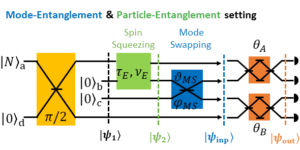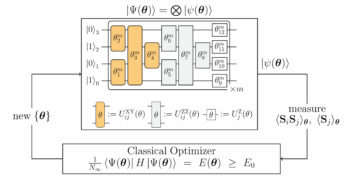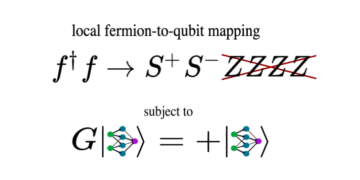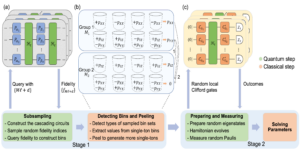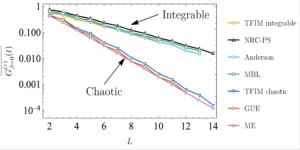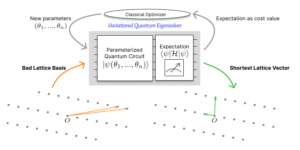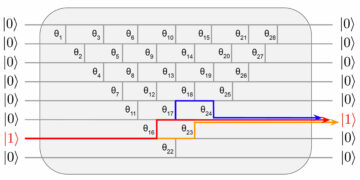1DAMTP, Centre for Mathematical Sciences, University of Cambridge, Cambridge CB30WA, UK
2Hitachi Cambridge Laboratory, J. J. Thomson Avenue, CB3 0HE, Cambridge, UK
3was29@cam.ac.uk
Find this paper interesting or want to discuss? Scite or leave a comment on SciRate.
Abstract
Measurements of quantum states form a key component in quantum-information processing. It is therefore an important task to compare measurements and furthermore decide if a measurement strategy is optimal. Entropic quantities, such as the quantum Fisher information, capture asymptotic optimality but not optimality with finite resources. We introduce a framework that allows one to conclusively establish if a measurement is optimal in the non-asymptotic regime. Our method relies on the fundamental property of expected errors of estimators, known as risk, and it does not involve optimisation over entropic quantities. The framework applies to finite sample sizes and lack of prior knowledge, as well as to the asymptotic and Bayesian settings. We prove a no-go theorem that shows that only classical states admit optimal measurements under the most common choice of error measurement: least squares. We further consider the less restrictive notion of an approximately optimal measurement and give sufficient conditions for such measurements to exist. Finally, we generalise the notion of when an estimator is inadmissible (i.e. strictly worse than an alternative), and provide two sufficient conditions for a measurement to be inadmissible.
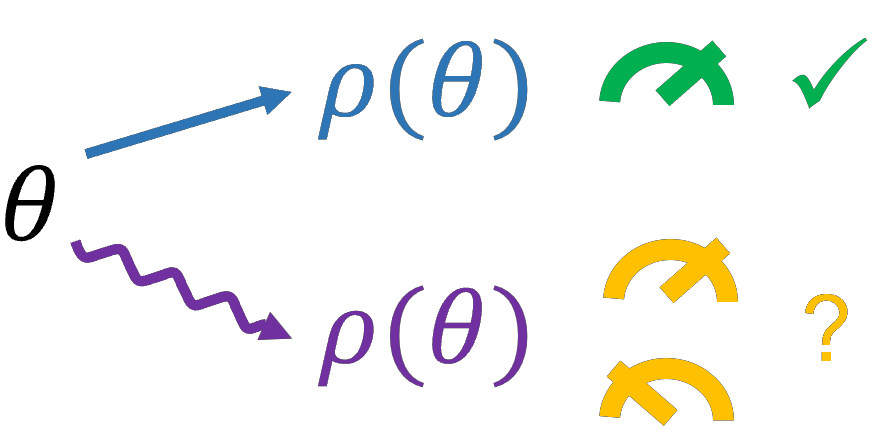
► BibTeX data
► References
[1] F. Albarelli, M. Barbieri, M.G. Genoni, and I. Gianani, ``A perspective on multiparameter quantum metrology: From theoretical tools to applications in quantum imaging'' Physics Letters A 384, 126311 (2020).
https://doi.org/10.1016/j.physleta.2020.126311
https://www.sciencedirect.com/science/article/pii/S0375960120301109
[2] Wojciech Góreckiand Rafał Demkowicz-Dobrza ński ``Multiparameter quantum metrology in the Heisenberg limit regime: Many-repetition scenario versus full optimization'' Phys. Rev. A 106, 012424 (2022).
https://doi.org/10.1103/PhysRevA.106.012424
[3] Samuel L. Braunsteinand Carlton M. Caves ``Statistical distance and the geometry of quantum states'' Phys. Rev. Lett. 72, 3439–3443 (1994).
https://doi.org/10.1103/PhysRevLett.72.3439
[4] Rafał Demkowicz-Dobrzański, Wojciech Górecki, and Mădălin Guţă, ``Multi-parameter estimation beyond quantum Fisher information'' Journal of Physics A: Mathematical and Theoretical 53, 363001 (2020).
https://doi.org/10.1088/1751-8121/ab8ef3
[5] Christopher A. Fuchsand Rüdiger Schack ``Priors in Quantum Bayesian Inference'' AIP Conference Proceedings 1101, 255–259 (2009).
https://doi.org/10.1063/1.3109948
[6] Eric L. Lehmannand George Casella ``Theory of Point Estimation'' Springer, New York, NY (1998).
https://doi.org/10.1007/b98854
[7] S. Kullbackand R. A. Leibler ``On Information and Sufficiency'' The Annals of Mathematical Statistics 22, 79–86 (1951).
https://doi.org/10.1214/aoms/1177729694
[8] A. Bhattacharyya ``On a Measure of Divergence between Two Multinomial Populations'' Sankhyā: The Indian Journal of Statistics (1933-1960) 7, 401–406 (1946).
http://www.jstor.org/stable/25047882
[9] Larry Wasserman ``All of Statistics'' Springer, New York, NY (2004).
https://doi.org/10.1007/978-0-387-21736-9
[10] Carl W. Helstrom ``Quantum detection and estimation theory'' Journal of Statistical Physics 1, 231–252 (1969).
https://doi.org/10.1007/BF01007479
[11] Vittorio Giovannetti, Seth Lloyd, and Lorenzo Maccone, ``Advances in quantum metrology'' Nature Photonics 5, 222–229 (2011).
https://doi.org/10.1038/nphoton.2011.35
[12] Charles Steinand W. James ``Estimation with Quadratic Loss'' Proceedings of the Fourth Berkeley Symposium on Mathematical Statistics and Probability 1, 361–379 (1961).
[13] Hwang Lee, Pieter Kok, and Jonathan P. Dowling, ``A quantum Rosetta stone for interferometry'' Journal of Modern Optics 49, 2325–2338 (2002).
https://doi.org/10.1080/0950034021000011536
[14] Michael A. Nielsenand Isaac L. Chuang ``Quantum Computation and Quantum Information: 10th Anniversary Edition'' Cambridge University Press (2010).
https://doi.org/10.1017/CBO9780511976667
[15] Joseph G. Smith, Crispin H. W. Barnes, and David R. M. Arvidsson-Shukur, ``Iterative quantum-phase-estimation protocol for shallow circuits'' Phys. Rev. A 106, 062615 (2022).
https://doi.org/10.1103/PhysRevA.106.062615
[16] M. Mosonyiand T. Ogawa ``Quantum Hypothesis Testing and the Operational Interpretation of the Quantum Rényi Relative Entropies'' Communications in Mathematical Physics 334 (2015).
https://doi.org/10.1007/s00220-014-2248-x
[17] A. Banerjee, Xin Guo, and Hui Wang, ``On the optimality of conditional expectation as a Bregman predictor'' IEEE Transactions on Information Theory 51, 2664–2669 (2005).
https://doi.org/10.1109/TIT.2005.850145
Cited by
[1] David R. M. Arvidsson-Shukur, Aidan G. McConnell, and Nicole Yunger Halpern, "Quantum simulations of time travel can power nonclassical metrology", arXiv:2207.07666, (2022).
[2] Joseph G. Smith, Crispin H. W. Barnes, and David R. M. Arvidsson-Shukur, "An adaptive Bayesian quantum algorithm for phase estimation", arXiv:2303.01517, (2023).
The above citations are from SAO/NASA ADS (last updated successfully 2023-05-11 10:23:19). The list may be incomplete as not all publishers provide suitable and complete citation data.
Could not fetch Crossref cited-by data during last attempt 2023-05-11 10:23:18: Could not fetch cited-by data for 10.22331/q-2023-05-11-998 from Crossref. This is normal if the DOI was registered recently.
This Paper is published in Quantum under the Creative Commons Attribution 4.0 International (CC BY 4.0) license. Copyright remains with the original copyright holders such as the authors or their institutions.
- SEO Powered Content & PR Distribution. Get Amplified Today.
- PlatoAiStream. Web3 Data Intelligence. Knowledge Amplified. Access Here.
- Minting the Future w Adryenn Ashley. Access Here.
- Buy and Sell Shares in PRE-IPO Companies with PREIPO®. Access Here.
- Source: https://quantum-journal.org/papers/q-2023-05-11-998/
- :is
- :not
- ][p
- 1
- 10
- 10th
- 11
- 12
- 13
- 14
- 15%
- 1951
- 1994
- 1998
- 2011
- 2015
- 2020
- 2022
- 2023
- 22
- 23
- 49
- 7
- 72
- 8
- 9
- a
- above
- ABSTRACT
- AC
- access
- admit
- affiliations
- aip
- algorithm
- All
- allows
- alternative
- an
- and
- Anniversary
- applications
- approximately
- ARE
- AS
- author
- authors
- Avenue
- Bayesian
- BE
- Berkeley
- between
- Beyond
- Break
- but
- by
- cambridge
- CAN
- capture
- Carl
- centre
- Charles
- choice
- Christopher
- comment
- Common
- Commons
- Communications
- compare
- complete
- component
- computation
- conditions
- Conference
- Consider
- copyright
- could
- data
- David
- decide
- Den
- Detection
- discuss
- distance
- Divergence
- does
- during
- e
- edition
- error
- Errors
- establish
- Ether (ETH)
- exist
- expectation
- expected
- Finally
- For
- form
- Fourth
- Framework
- from
- full
- fundamental
- further
- Furthermore
- geometry
- George
- Give
- harvard
- Have
- holders
- http
- HTTPS
- i
- IEEE
- if
- Imaging
- important
- in
- Indian
- information
- institutions
- interesting
- International
- interpretation
- introduce
- involve
- IT
- JavaScript
- journal
- Key
- knowledge
- known
- laboratory
- Lack
- Last
- least
- Leave
- Lee
- less
- License
- LIMIT
- List
- loss
- mathematical
- max-width
- May..
- measure
- measurement
- measurements
- method
- Metrology
- Michael
- Modern
- Month
- most
- Nature
- New
- New York
- normal
- Notion
- NY
- of
- on
- ONE
- only
- open
- operational
- optics
- optimal
- optimization
- or
- original
- our
- over
- Paper
- perspective
- phase
- Physics
- plato
- Plato Data Intelligence
- PlatoData
- Point
- populations
- power
- Predictor
- press
- Prior
- probability
- Proceedings
- processing
- property
- protocol
- Prove
- provide
- published
- publisher
- publishers
- quadratic
- Quantum
- quantum information
- recently
- references
- regime
- registered
- remains
- Resources
- Restrictive
- Risk
- s
- scenario
- SCIENCES
- settings
- shallow
- Shows
- sizes
- squares
- States
- statistical
- statistics
- STONE
- Strategy
- Successfully
- such
- sufficient
- suitable
- Symposium
- Task
- Testing
- than
- that
- The
- their
- theoretical
- theory
- therefore
- this
- time
- time travel
- Title
- to
- tools
- Transactions
- travel
- two
- under
- university
- university of cambridge
- updated
- URL
- Versus
- volume
- W
- want
- was
- we
- WELL
- when
- with
- worse
- year
- york
- zephyrnet


